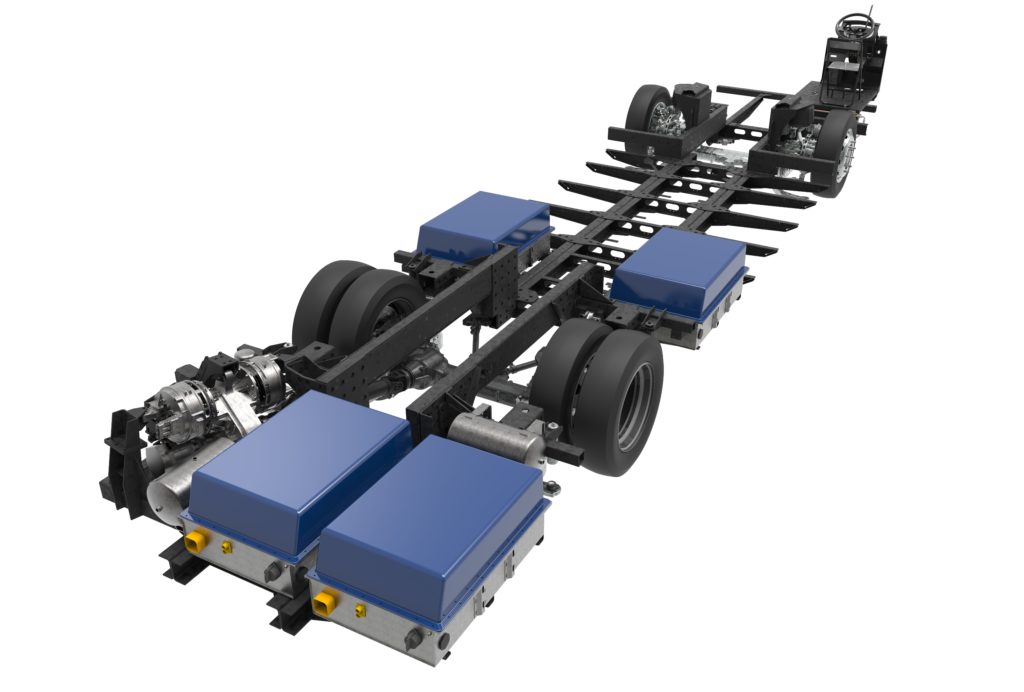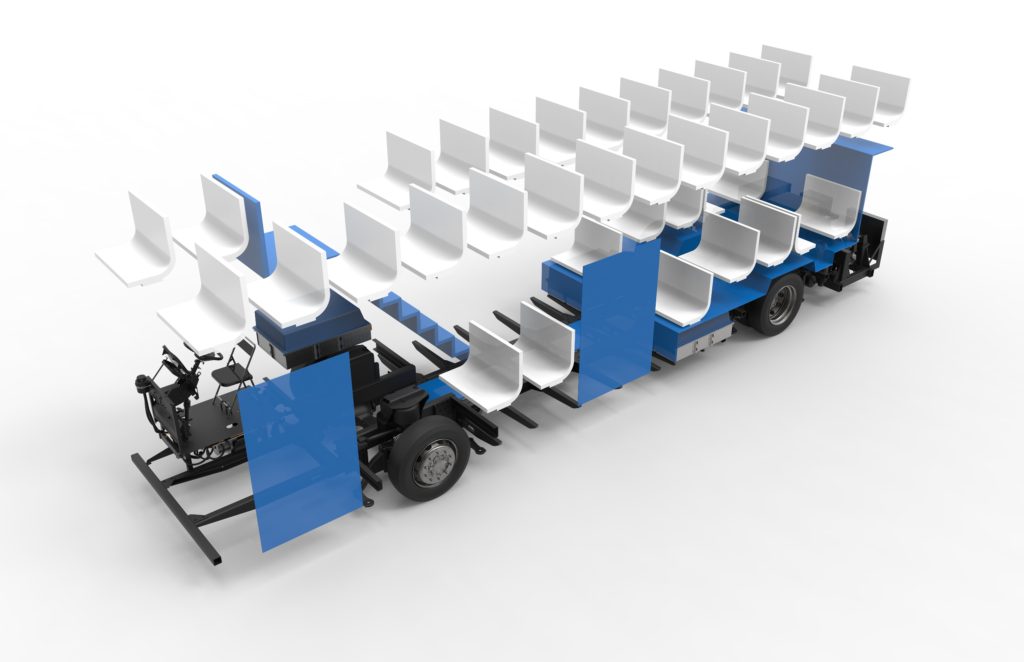Expert automotive electrification company, Equipmake, has revealed the very latest version of its innovative electric bus platform, a new low floor chassis designed to make zero emission double deckers more cost-effective and efficient than it has ever been. Unveiled at the world’s largest bus and coach show, Busworld Europe, and on display in Hall 1, Stand 105c, the new low floor chassis follows on from Equipmake’s existing low-entry EBus powertrain – designed for single deckers – which has been in testing for the last 12 months and enters inservice trials next year.
All EBus drivetrains feature two APM200 motors at its heart. The APM200 is Equipmake’s innovative spoke-architecture electric motor, bred from F1 technology and believed to be the highest power/torque dense production automotive electric motor in the world. These motors, which each produce 220kW and 450Nm of torque are mated to a two-speed gearbox, while proven Semikron SKAI inverters and the latest generation lithium-ion battery cells complete the fully integrated platform.
But it is the integration and energy management that really sets EBus apart. The drivetrain features a number of novel innovations, that not only improve range but reduce capital cost. By optimising the heating and cooling of the vehicle and maximising overall energy efficiency, the bus will have enough range for one day’s running without the need for charging. In this way, the vehicle won’t be reliant on infrastructure and can maintain flexibility of route.
For operators, it also reduces initial expenditure as the EBus platform’s efficiency means it can use a smaller battery pack bringing overall cost down. Equipmake estimates that within 8-10 years, its EBus platform will be cheaper to run than a conventional diesel version. To charge the vehicle, the operator simply needs access to a standard three-phase supply, which will fully charge the vehicle in around five hours. However, the powertrain also supports fast charging – and has an onboard charger.
Equipmake has already entered the final testing phase of its low-entry single decker EBus platform, with UK-based performance and durability development set to finish at the end of the year. In-service trials of the vehicle will then begin in Q1 2020 by Brazilian commercial vehicle manufacturer, Agrale, who will launch the electric bus first in Buenos Aires, Argentina in 2021. Equipmake will begin double decker chassis trials later this year.
Ian Foley, Managing Director of Equipmake, said: “Electric buses are one of the most effective ways to reduce urban pollution, but until now they have been prohibitively expensive. Equipmake’s EBus platform changes that. It is a cost-effective, highly efficient and completely-integrated chassis that allows any coachbuilder to become an electric bus manufacturer – regardless of how much EV knowledge they have.
“We are delighted to unveil the low floor version of our EBus chassis at Busworld. Aimed at the double decker market, it follows on from our low-entry floor single decker version which enters in-service trials in Buenos Aires, Argentina with Agrale next year.
“All our EBus platforms have been designed to optimise onboard heating and cooling, maximising overall energy efficiency, allowing us to use a smaller battery and giving the bus enough range for one day’s running without the need for charging. With initial expenditure and running costs reduced, we anticipate that an EBus electric bus could be cheaper to run than a conventional diesel within 8-10 years of service.
“There is a significant demand for clean, affordable electric buses – the global market is around 300,000 vehicles per annum – and that is only growing. Manufacture of Equipmake’s EBus powertrains will scale dramatically over the next few years, so much so that we will be moving to a new bespoke facility next month. We expect to build 700 single decker EBus drivetrains for Agrale in the first year of production but we are already seeing major demand from markets all over the world, making our new factory crucial to fulfilling requirements for both single and double decker applications.”

